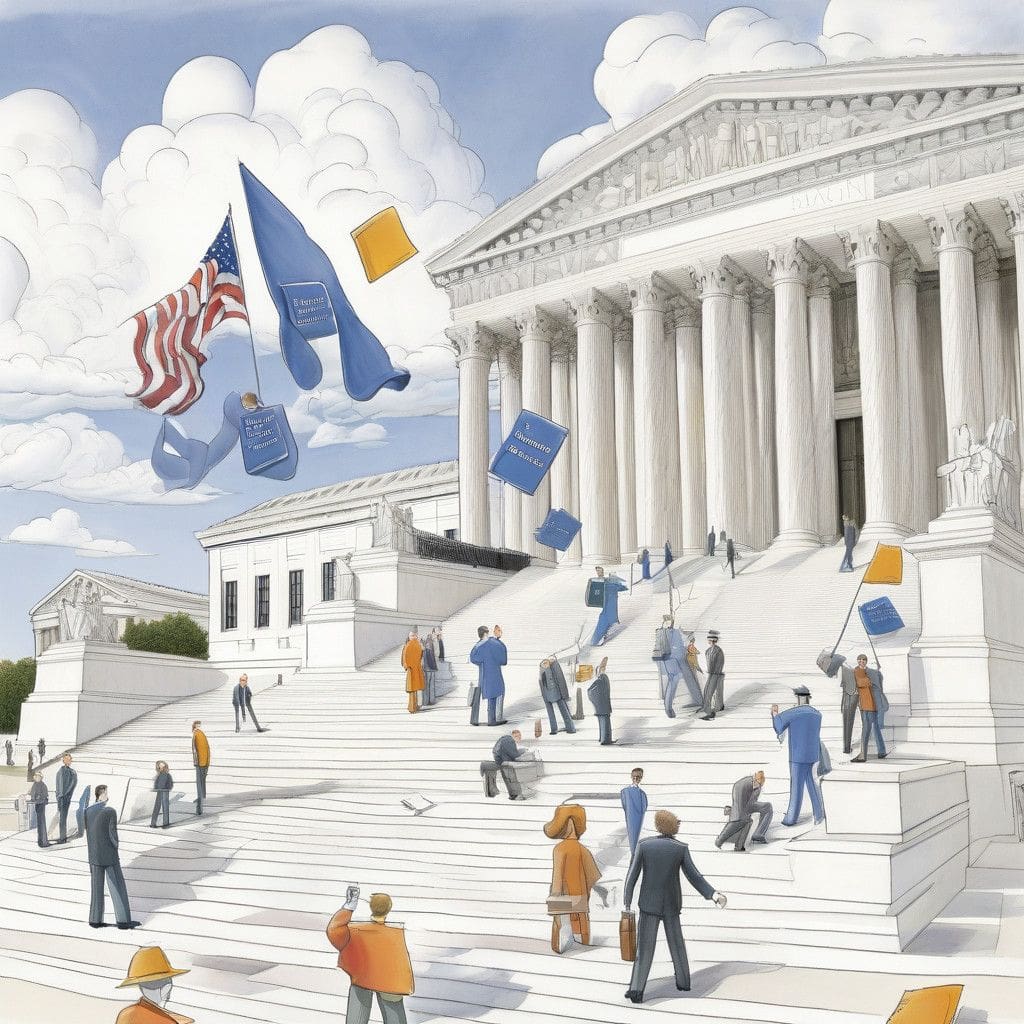The impending U.S. Supreme Court review of two significant securities fraud cases involving Facebook and Nvidia has sparked intense debate about corporate accountability and the rights of private investors. With these cases poised to determine whether large tech corporations can evade liability for misleading investors, the outcomes could reshape the landscape of corporate governance and legal recourse in the financial sector.
The litigation in question stems from allegations that Facebook, now under the parent company Meta, misled investors concerning a massive data breach that occurred in 2015. This breach, linked to Cambridge Analytica, was deemed a significant threat to the privacy of over 30 million users. A group of investors, spearheaded by Amalgamated Bank, argues that Facebook did not provide adequate warnings about the risks associated with this breach, thus misleading shareholders. Facebook contends that it provided sufficient forward-looking disclosures about potential risks, claiming that it acted in good faith.
In a separate but equally consequential case, Nvidia faces allegations from the Swedish investment firm E. Ohman JFonder AB. This suit accuses Nvidia of underplaying the impact of cryptocurrency-related sales on its revenue growth during 2017 and 2018. Investors argue that Nvidia’s misleading information had a direct impact on their investment decisions, as it obscured the volatility of the company’s business tied to the rapidly fluctuating cryptocurrency market.
These legal battles are significant for several reasons. First, they could further empower corporations by limiting their exposure to potential liabilities from private class-action lawsuits. With recent rulings from the Supreme Court restricting the authority of federal regulatory bodies, including the Securities and Exchange Commission (SEC), the role of private litigation in enforcing securities laws becomes increasingly pivotal. Legal expert David Shargel notes that as regulatory oversight becomes more constrained, individuals and private plaintiffs may find themselves in a more pronounced position to hold corporations accountable.
The implications of these cases extend far beyond the immediate parties involved. A ruling favoring either Facebook or Nvidia could set a crucial precedent that affects how investors are able to seek recourse against corporate malfeasance. Should the Supreme Court side with the companies, it may signal a retreat from investor protections and could embolden corporations to prioritize profit over transparency.
In evaluating these cases, the Supreme Court will likely consider the balance between encouraging corporate growth and safeguarding investor rights. The court must navigate a complex legal landscape, weighing the necessity of investor protections against the potential stifling of innovation and competitiveness that might arise from excessive litigation risks.
Beyond the technical legal arguments, there lies a broader societal concern about the accountability of major tech entities. As corporations like Meta and Nvidia have grown exponentially, so too have their responsibilities to their shareholders. Investors, particularly in the tech sector, are increasingly anxious about corporate governance issues and demand more transparency regarding potential risks that could impact their investments.
The outcomes of these cases are critical as they may not only reshape corporate liability but also set the tone for future investor relations. As tech companies continue to flourish in an increasingly digital economy, the legal frameworks surrounding investor protections must evolve to adapt to this new landscape. A ruling that empowers corporations at the expense of investor rights may lead to a chilling effect on investor confidence and could result in a surge of public skepticism toward large corporations.
As we approach the hearings, stakeholders from various sectors will be watching closely. The business community is on edge, concerned about how these decisions could influence their operations and risk exposure. Conversely, investor advocacy groups view these cases as pivotal in their ongoing struggle for fair treatment and transparency from the corporations in which they invest.
In conclusion, the Supreme Court’s forthcoming decision on these securities fraud cases represents a momentous opportunity for redefining corporate accountability within the realm of securities law. This situation underscores the underlying tension between fostering a vibrant economy and protecting the rights of those who fuel it – the investors. Regardless of the outcomes, the decisions made by the court will have lasting repercussions not only for Facebook and Nvidia but also for the entire corporate landscape and investor relations in the United States.












